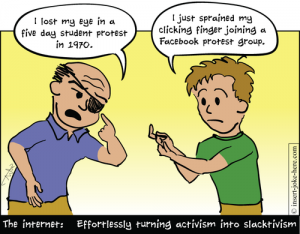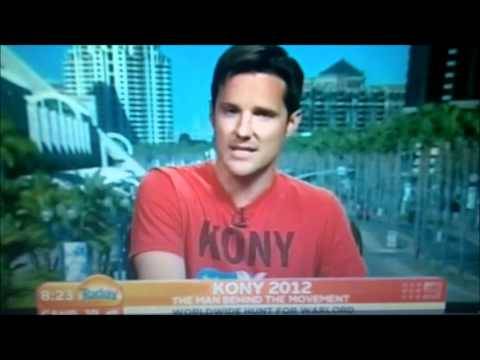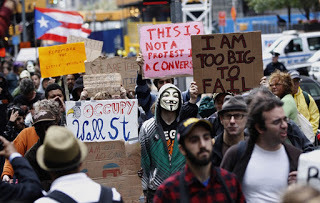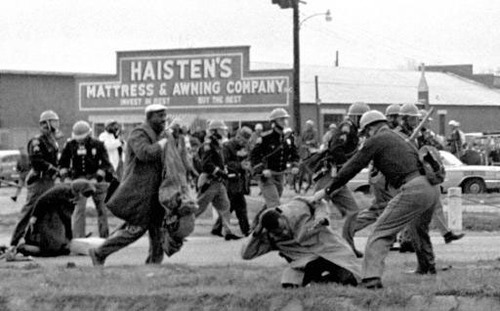#simonnugent
Explore tagged Tumblr posts
Text
RT @KeinPfusch: @SimonNugent @WeyandSabine no. In such a case you would go to have a technical delay until 22nd May, which is a technical delay, ending before of EU elections. Ops, sorry, you think the MEP aren't elected. Let's say before of some folklore we call "vote", for some reason. Whatever.
RT @KeinPfusch: @SimonNugent @WeyandSabine no. In such a case you would go to have a technical delay until 22nd May, which is a technical delay, ending before of EU elections. Ops, sorry, you think the MEP aren’t elected. Let’s say before of some folklore we call “vote”, for some reason. Whatever.
@KeinPfusch ha twittato: @SimonNugent @WeyandSabine no. In such a case you would go to have a technical delay until 22nd May, which is a technical delay, ending before of EU elections. Ops, sorry, you think the MEP aren’t elected. Let’s say before of some folklore we call “vote”, for some reason. Whatever.
no. In such a case you would go to have a technical delay until 22nd May, which is a…
View On WordPress
0 notes
Text
Big Data: Taking the Good with the Bad - Simon Nugent Week 9 Readings
“Data is the new Oil”, so said the European Consumer Commissioner Meglena Kuneva, and she had a point too. Today’s society with its penchant for all things connected online, allows for a most valuable resource to exist electronically. Data is and will continue to be one of the most important and valuable resources available to big business for the foreseeable future.
But why data? Facebook posts, silly quizzes about which Jonas Brother you are and spam emails can’t be all that useful can they? Well, it’s important to remember all of the data we enter online. Google searches, credit applications and medical information all uploaded, published and clicked on are aspects of your online footprint that involve data. But that’s not all. You see, data isn’t valuable in and of itself. However, when data is processed, it unlocks a deep well of information. As Siegel (2013) so aptly put it:
“It uncovers what drives people and the actions they take-what makes us tick and how the world works. With the new knowledge gained, prediction is possible. “
Yes, that’s right, with the use of data processing, companies can really make predictions on, who you are as a person, what you might be interested in and what you might be doing on a day-to-day basis (Siegel, 2013). For the companies this means they have more daily opportunities to sell you stuff. They can tell what you’d probably buy and what you’d probably be doing online at any certain time and can tailor their advertising right to you. Though not always to a completely accurate degree (Siegel, 2013).
This can be very good for you. On one hand it means that it’s likely that ads you see are only going to be things that you want to buy, and similarly, you will be recommended movies that you actually want to see and music that you want to listen to. Your online experience can be tailored to you and centered on you. It means more meaningful communication between the consumer and the company and therefore less junk that you need to sort through (Siegel, 2013).
However Big Data has it’s own dark sides too (Woodford, 2014). Some would see this new world of Data collection as a mass invasion of privacy. In many cases, third parties have access to personal data about you and the government is privy to much of your information too (The Economist, 2012). In this case it can basically be said that parts of who you are being sold. So is data collection really as good as we hope it is or do the negatives outweigh the positives?
Whatever you happen to believe about data collection, it is clear that it is beginning to define the way organizations gain capitol. Data is becoming a more and more important resource in the world of New Media, and the questions is how much of it are you willing to give up?
References:
The Economist. (2012). The dark side of big data. [Online Video]. 26 June. Available from:https://www.youtube.com/watch?v=raJOkguPrH4. [Accessed: 11 May 2014].
Siegel, Eric. 2013. “Introduction – The Prediction Effect.” In Predictive Analytics, 1-16. Hoboken, NJ: John Wiley and Sons Inc.
Darryl Woodford (2014). New Media, Big Data and Telemetrics, lecture notes distributed in the topic KCB206 Internet, Self and Beyond. QUT, Kelvin Grove on 1 May.
0 notes
Text
Is New Media Stopping us From Changing the World? (Week 8 Readings Simon Nugent)
Today’s political climate is most certainly intertwined with the rise of New Media. Event such as the Arab Spring, The Occupy Wall Street Movement and the rise of Wikileaks, to name a few, are all examples of New Media’s impression on the political world today. When it comes to Politics, it’s clear that New Media has it’s way of providing citizens with a power they were once without. But is this really true? Has the rise of New Media actually changed the power dynamic of politics, or are we all just blinded by its ability to make us feel heard? In this week’s blog I want to discuss how New Media has had a stake in making change artificial and creating a culture of apathy where there could be change.

In his article Small Change, Malcomb Gladwell makes an important point about how New Media creates “weak-tie” connections and decreases motivation. He says that New Media:
“…simply a form of organizing which favors the weak-tie connections that give us access to information over the strong-tie connections that help us persevere in the face of danger... It makes it easier for activists to express themselves, and harder for that expression to have any impact.” (Gladwell, 2010)
There’s a substantial amount of evidence to suggest that Gladwell’s statement is correct. New Media has given its users hundreds of outlets with which to easily support messages without committing to a cause. Now, liking a Facebook Page or Signing an Online petition makes us feel like we’re making a change, rather than standing up and taking the chance to change ourselves. We are filling our need for activism without putting in the commitment or effort.
An example of this is the hugely viral KONY2012 movement of recent years. A simple Youtube video, which inspired many young people from all around the world. However, the movement never achieved change. It created a movement, but with no commitment behind the idea there was no ground for creating real change. The movement was highly effective in bringing people together but together they were not effective in bringing change.

Other examples with seemingly more success such as the Arab Spring or the Occupy Wall Street movement also tend to fall short. Large movements like these are championed as most prominent success stories of social media ever. But are they really? Revolutions are not unique to this day and age.

An example Gladwell uses in his article is the African-American Civil Rights movement (Gladwell, 2010). A movement that happened completely independently of New Media. A dangerous and risky movement that took dedication and sacrifice. This movement needed people to be 100% committed to the cause, because that’s what influenced change. It provided an outlet for strong ties.

Today, New Media forces people’s ties to causes to become weak. The desire to belong, to feel right, and to be seen passing on the message with no risk or stakes, has caused people to become apathetic towards their causes. Perhaps New Media just isn’t ready to be the catalyst for change we all expect it to be.
References
Gladwell, Malcom. 2010. “Small Change: Why the Revolution will not be Tweeted.” The New Yorker, October 4. Available at:http://www.newyorker.com/reporting/2010/10/04/101004fa_fact_gladwell?currentPage=all
Follow Malcom Gladwell on Twitter: @malcomgladwell
0 notes
Text
Week 3 Readings - Who Creates the Content? Simon Nugent
What is different about media today as apposed to what it was in the past? What has New Media done to change the face of what we expect from media in today’s society? It is quite clear that media is no longer just a monologue, a static communication from one creator to audience, media in the modern day has become a dialogue. This process by which New Media has reshaped the way we view a piece has caused us to reevaluate how we see content as valuable anymore. Has the face of media changed by making the audience and the content creators indistinct from one another.
One of the most obvious examples of how this plays out in our society today is the vast and extensive use of Social Networks. By using Hybrid Economies, of both advertising revenue and social currency (Lessig, 2008), sites like, Facebook, Twitter, Tumblr and many more are made valuable by nothing more than the people who make use of them (Green & Jenkins, 2011). The content provided by the users of these sites is the only thing that causes these platforms to have value. However, these connections are obvious when it comes to having talking about content created by the user aren’t they? This doesn’t prove or even suggest that all media is affected by user-generated content.
Well, we can look at the situation slightly more broadly and discover that platforms such as Youtube, where the line between audience and creator and audience are certainly clearer, still fall prey to this idea that at least some of almost all media content today is created by it’s users (Brake, 2013). As bad as the culture is said to be around the use of Youtube comments it’s undeniable that a critical amount of the value added to Youtube channels is the sense of community the social networking aspect of website provides. Even many television shows are not immune to this concept. Programmes may not always be made with user provided content in mind, however, they cannot avoid the fact that users will post comments on forums, create user-generated fan reviews and trailers and create pieces of art and write stories in relation to the content in which they provide. Often these fanatical dominions or “fandoms” provide a community aspect that is more valued than the show itself.
Some television programmes have hooked onto this concept to a degree where they actually allow the viewers to control the outcome of the show itself. Forget your opinion of the show, Big Brother is one of the best and most innovative examples of this concept. Big Brother was one of the first pieces of content to allow its viewers to claim a stake in the show’s outcome and this idea is largely responsible for its success.
So is this new culture of media becoming a user-generated experience a good thing? It’s certainly been integral to the success of many companies in the last 15 years, but whether user-generated media creates better or worse content for everyone is up to the users themselves.
References:
Lessig, Lawrence, (2008). Chapter 7: Hybrid Economies. In Lessig, Lawrence, Remix: Making art and commerce thrive in the hybrid economy, (pp.177 - 224). New York: Penguin.
Green, J and Jenkins, H, (2011). Chapter 5 : Spreadable Media : How Audiences Create Value and Meaning in a Networked Economy. In Nightingale, Virginia, The handbook of media audiences, (pp.109 - 127). Chichester: Wiley-Blackwell.
Brake, D (2013). Are we all online content creators now ? Web 2.0 and digital divides.,Journal of Computer-Mediated Communication pp.1-19.
0 notes
Text
Media and Self (Week 2) Simon Nugent
For many of us living in the 21st century our mornings are characterized by the ritualistic browse through our favourite social networking site on our easily accessible Smartphone at least 20 minutes or so before we even get out of bed. We may follow this with breakfast in front of an online news article or an update from an RSS Webcomic before we make our way to our jobs our to study at which point we will sit in front of yet another screen. It’s undeniable how much New Media exists as an influencing factor in today’s society. In his text Media Life, Dueze suggests that the uprise of New Media has caused a society today that exists in a state of ‘Mediapolis’. Media is now integral in every process in contemporary existence and this is cause it’s consumers to become blinded to the effects it has upon them. With the ever-increasing popularity of accessing our media through the Internet the ubiquitous nature of influential media is far greater now than any other time in history. Which leads to an important question about the influence of media on us as a society, does this omnipresent style of media consumption cause us to lose site of who we are in relation to media?
In this day and age of social networking with sites such as Youtube, Facebook, Tumblr, Twitter and many more, certain social ideas have been highly influenced by these ever-present media ideals. The idea of a “Mediapolis” where in media outlet have become a domestic addition to our daily lives has greatly changed common ideas of privacy, connectedness, socialization and freedom of information. However, these changes have been implemented by these forms of media which have been so heavily integrated into our daily routine that they are basically invisible to us. Therefore, social networking makes an unmistakable impact on the formation of a modern person’s identity while they are unlikely particularly aware of it in the first place.
Looking at this idea through a lens of self-reflexivity - wherein the different aspects of self have a tendency to change who we are in as much as how we react to them – we can assume that our use of media on an almost full-time basis is likely to highly effect how we conduct ourselves at all times. This leads us back to the question about our identity within the world of the “Mediapolis”. Does media define who we are as people or do our personal identities define what kind of media we consume?
Well, it is a difficult question to answer however we can make a conclusion that Media is both an influencer to and influenced by our sense of self-identity. Perhaps the search for identity doesn’t lie who we are as a separate entity from the media we consume, but rather, how we interact within the omnipresence of media. Perhaps our penchant for media consumption is what defines us, rather than confuse our sense of identity, in this age.
References:
Boyd, Danah, (2011). Chapter 2 : Social Network Sites as Networked Publics – Affordances, Dynamics, and Implications. In Papacharissi, Zizi, A networked self ��� identity, community, and culture on social network sites, (pp.39 - 58). New York: Routledge.
Papacharissi, Zizi and Gibson, Paige L, (2011). Chapter 7 : Fifteen Minutes of Privacy : Privacy, Sociality, and Publicity on Social Network Sites. In Trepte, Sabine and Reinecke, Leonard, Privacy online : perspectives on privacy and self-disclosure in the social web, (pp.75 - 89). Heidelberg: Springer-Verlag.
Deuze, Mark (2011). Media Life., Media, Culture & Society 33 (1) pp.137-148.
0 notes
Text
Test Post
Testing... testing...
0 notes